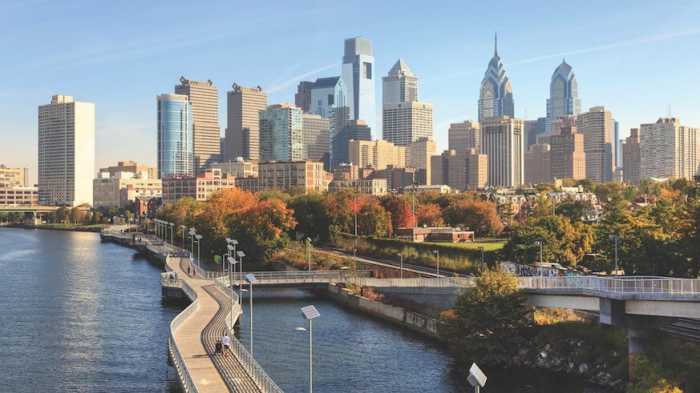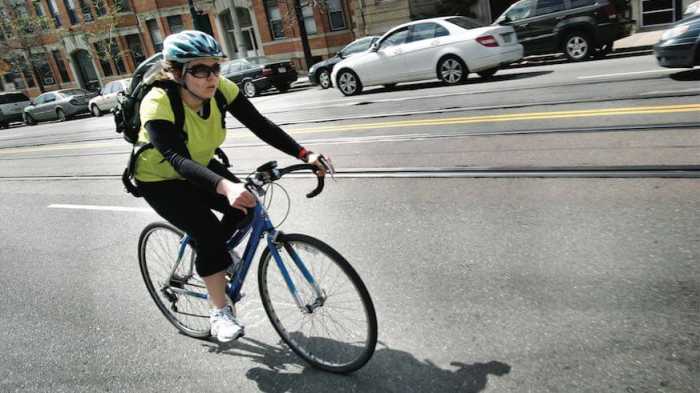While Philadelphia debates its new Vision Zero Action Plan, our southern neighbor, Delaware, is about to pass a package of bills collectively referred to as the Bicycle Friendly Delaware Act, which will include a Stop as Yield law, likely making Delaware the second state in the country to do so.
In the U.S., only Idaho allows cyclists to treat stop signs as yield signs. Most traffic signs and signals were not created with vehicular cyclists in mind. And Idaho’s law – commonly referred to as the Idaho Stop – has been successful in high bike-traffic Idaho cities, like Boise, since it was introduced in 1982.
Here’s how it works: Most cyclists slow down when they approach stop signs, look left, right, then left again, make sure the coast is clear, then proceed (usually while continuing a slowed forward motion). The law simply OKs that.
Why does this make sense? Because cyclists who stop at stop signs often find themselves in a lose-lose situation. If they stop, the driver behind them may get restless, honk their horn, or create another unsafe scenario; if they roll through a stop sign (even if they do so safely), they get ridiculed as a scofflaw, and may further anger drivers – who are, by and large, the most dangerous people on our streets with the most dangerous weapons.
A safe yield could help solve these problems.
The Idaho Stop doesn’t allow cyclists to “blow through” the sign without looking, and the fine for doing so in Idaho is actually higher than the fine for running a stop sign in Philadelphia.
John Bare, of cycling advocacy group Bike Delaware, has been advocating for the Bicycle Friendly Delaware Act for several years. He says the addition of the Delaware Yield law is all about safety.
“Safety is not about stopping at stop signs,” he tells me. “Safety is about yielding in unsafe situations. In crashes at intersections, somebody failed to yield.”
As much as it angers people critical of cyclists, yielding at a stop sign isn’t dangerous if the cyclist acts conservatively (which most do) and, in the advocacy process to move the Bicycle Friendly Delaware Act forward, the Delaware State Police agreed.
“One of our Bike Delaware members was ticketed at an empty stop sign on a quiet residential street in a college town,” says Bare. “Everyone – including the police who were on stop sign patrol intended for automobiles – thought it was silly. Getting the Delaware State Police on board was key.”
To get the State Police buy-in, the Delaware Yield does not include traffic signals (red lights) and only applies on roads with two travel lanes. But that includes most city streets and most suburban/rural roads where yielding makes sense versus a complete stop with no exceptions.
To be clear, a similar Stop as Yield law is not part of the city of Philadelphia’s recently unveiled Vision Zero Action Plan. But maybe this sensible alternative to forcing cyclists to adhere to laws not originally written for them is worth looking at.

































